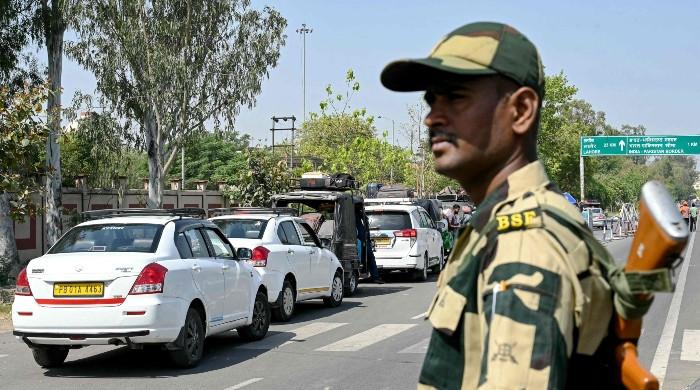Nashwa: Medical malpractice or murder?
Nine-month-old Nashwa could have been saved. When does medical malpractice become manslaughter?
April 26, 2019
The death of a young child, Nashwa, due to medical negligence of the doctors in Karachi has given rise to many questions. Most important of which is the accountability of doctors.
Nashwa died after a wrong injection was administered to her. This is not the first time that a life has been lost due to gross negligence. It will also not be the last time that doctors will be able to get away with it.
The laws governing medical negligence in Sindh and Punjab are called the Sindh Healthcare Commission Act, 2013 and the Punjab Healthcare Commission Act, 2010. Both these laws prescribe a maximum fine of Rs500,000 as penalty in case medical malpractice is established against a doctor. In fact, section 26 (2) of the Sindh Act gives it the power to refer a case to a governmental authority or a law enforcement agency for appropriate action.
The problem, however, lies in the arbitrary manner in which these powers are exercised. In Nashwa’s case, a monetary penalty of Rs500,000 on the hospital was recommended. Further, the commission, established under the Act, ordered the medical facility to sack the ‘untrained’ staff.
One is forced to ponder if the punishment is proportionate to the offence committed here.
There is a dire need for criminalising medical negligence, which can be done by referring the case to the police for action under criminal laws. The Lahore High Court in its recent judgment titled, “Naseem Akhtar v. Ex-Officio Justice of Peace etc”, held that proceedings by a healthcare commission are not criminal in nature, as it was established to investigate allegations of maladministration, malpractice or failure on the part of healthcare service provider or its employee. The judgment holds that registration of criminal cases against culprits, in addition to being tried by the commission, would not amount to double jeopardy.
Now if this were to happen, what section of the Pakistan Penal Code, 1860 (PPC) should the doctors be charged?
Rarely do commissions refer a matter to the police, and in cases where it does the police usually charge the accused with sections 319 and 322 of the PPC, therefore, punishments for committing “Qatl-i-khata” and “Qatl-bis-Sabab”.
Both are defined as below:
Qatl-i-khata: Whoever, without any intention to cause death of, or cause harm to, a person causes death of such person, either by mistake of act or by mistake of fact, is said to commit qatl-i-khata.
Qatl-bis-Sabab: Whoever, without any intention to cause death of, or cause harm to, any person, does any unlawful act which becomes a cause for the death of another person, is said to commit qatl-bis-sabab.”
The above laws insist on an absence of intention.
Doctors, against whom a charge of medical negligence stands established, must be charged with Section 302 of the PPC, which prescribes a punishment of death penalty for committing ‘Qatl-e-Amd’:
Qatl-e-Amd:
Whoever, with the intention of causing death or with the intention of causing bodily injury to a person, by doing an act which in the ordinary course of nature is likely to cause death, or with-the knowledge that his act is so imminently dangerous that it must in all probability cause death, causes the death of such person, is said to commit qatl-e-amd.
“Qatl-e-Amd” includes doing an act with the knowledge that his/her act is dangerous and it can or will cause death.
Doctors who have passed the MBBS examination and have the experience are obviously in the knowledge of effects, side-effects and dangers of medicines which they prescribe and use for patients.
Special protection must not be accorded to any class of individuals in society. Laws governing gross negligence, leading to the death of the patient, must be criminalised to ensure that we don’t lose another Nashwa.











